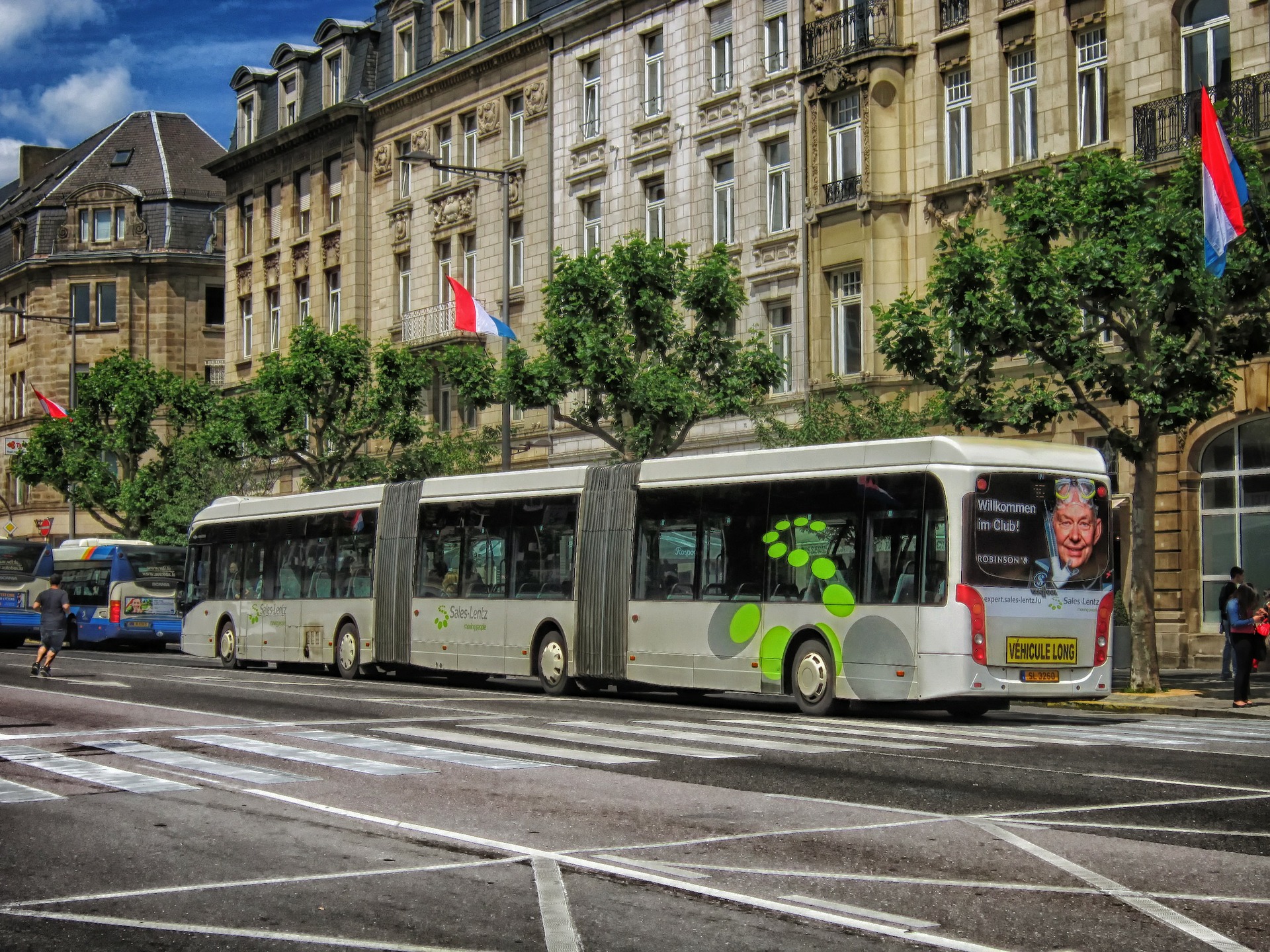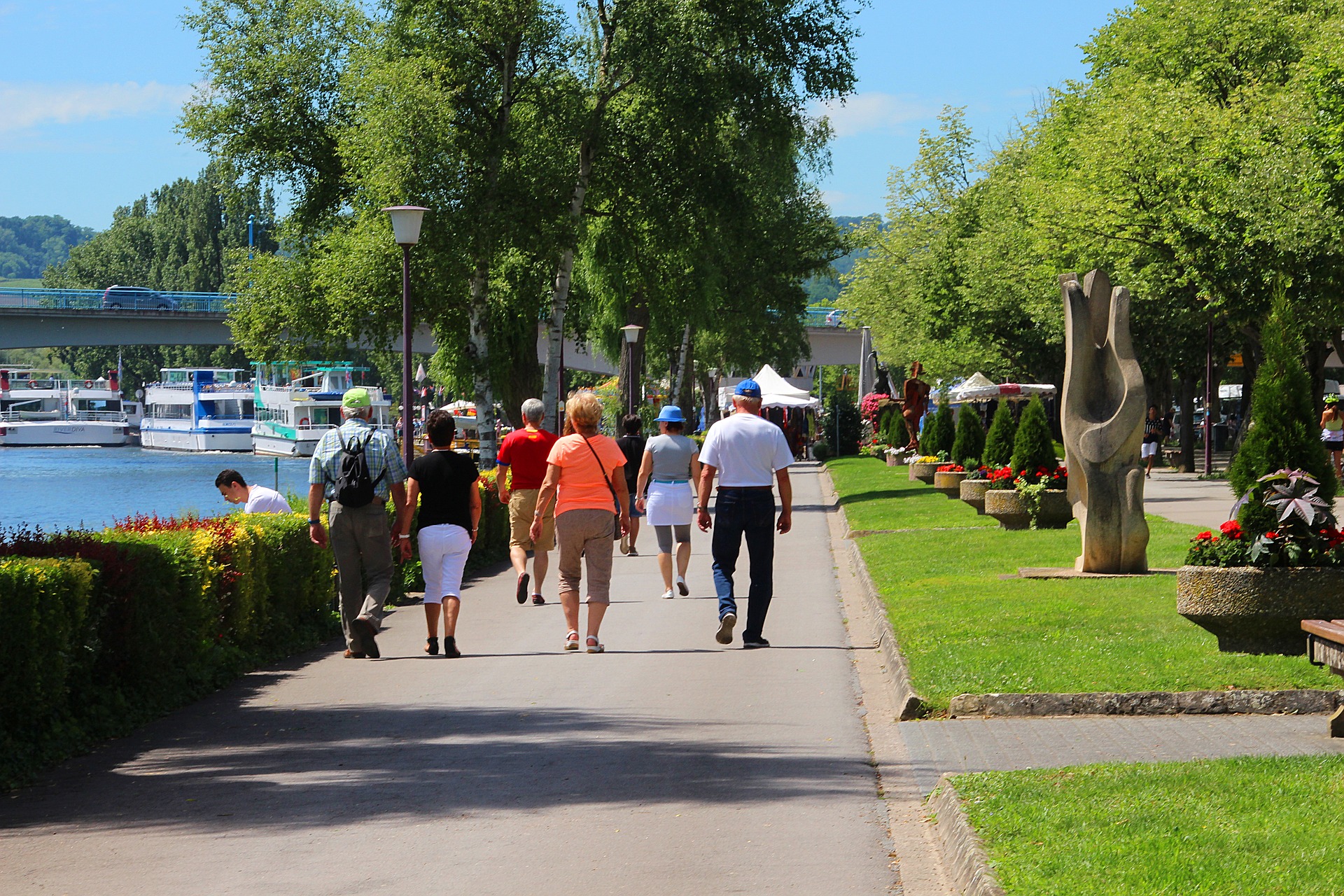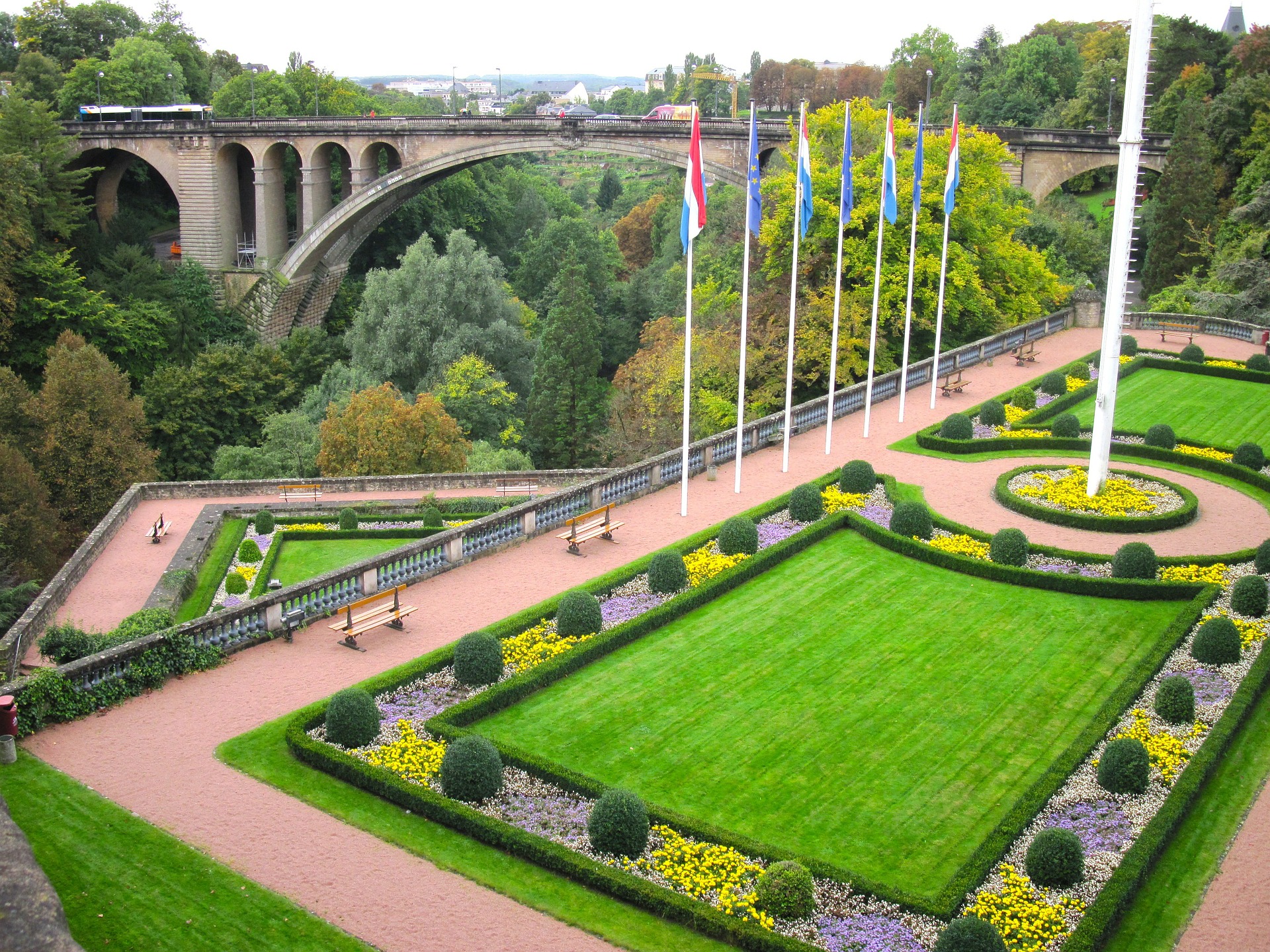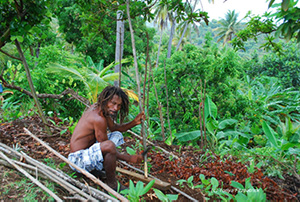Luxembourg: Spotlight on Sustainability

luxembourg view of castle and town
Posted March 27, 2024
“Luxembourg? You’re going to Luxembourg? Where is that? What’s even there?”
Such was the remarkably common response when I shared my early 2020 Euro-trip itinerary with friends and family. Even the majority of my well-traveled writer colleagues hadn’t ever considered a trip there.
With just a quick week to spend on the continent, thanks to a delightful and unexpected $300 roundtrip ticket from Chicago to Paris, I decided to spend some time in three new (to me) countries. First up, was Bruges, Belgium where I ate all the waffles, wandered the pretty streets, watched swans frolic in the picturesque canals, and drank lots of beer. Next, was two nights and three days in the often-overlooked nation of Luxembourg, a total gem, which I’ll expand upon below. Finally, I spent a few nights in Old Parie enjoying the Michelin dining scene, tons of wines I couldn’t pronounce, and seeing all the glorious touristy sights.
The Grand Duchy of Luxembourg is a lesser-known European entity sandwiched between France, Belgium, and Germany. This small but varied nation clocks in at about the size of Rhode Island and boasts some incredible UNESCO sites, a unique melting pot of cultures, a rising food scene, and so much more. Luxembourg also has a divine wine culture and is internationally renowned for its sparkling crémants, a bubbly beverage crafted in the same painstaking tradition as nearby Champagne. Simply look for the special “Crémant de Luxembourg” label and be aware that only France and Luxembourg produce crémants. Rieslings from Luxembourg’s Moselle Valley are also well-respected and aren’t cloyingly sweet like many New World offerings. The capital city is walkable, with cool enclaves and interesting museums, with the natural tension between the daunting old fortress and sleek modern architecture.


But what truly struck me the most about Luxembourg was their commitment to sustainability and eco-friendly living. Better known countries like Costa Rica and Slovenia tend to dominate the green travel conversation. After all, Slovenia has been awarded the top sustainable travel prize and Costa Rica is an eco-tourism hot spot with 98% renewable energy nationwide.
So it’s even cooler that on March 1st, 2020, Luxembourg became the first nation in the entire world to offer free public transit countrywide. Some cities have already done so, like Estonian capital Tallinn and the French community of Dunkirk, but no other sweeping full country perk yet exists.
Remarkably, this benefit not only encompasses citizens, but also the thousands of workers who trek into Luxembourg City for business each day, and all tourists. Everyone can access the free transit, which includes buses, trams, and trains. (Please note: first-class train tickets are not included in the free public transit movement). Conveniently, many of the transit stops also have biking and hiking routes between them for even easier mobility.
This movement is partly due to the fact that Luxembourg has more cars per 1,000 persons than anywhere else in the European Union. The government has set a goal of 20% higher ridership in the next five years, and this is one of the stepping stones to get there. With an ever-growing population, which has nearly doubled in the last decade, this is a way to focus on building eco-friendly infrastructure to better serve the new Luxembourg.


In another sustainability boost, Luxembourg has numerous protected nature reserves and National Parks, over sixty in fact, that cover roughly 3% of the nation. This helps to ensure that future generations will be able to enjoy the natural bounty the country has to offer. In fact, travelers during warm seasons should be aware that Luxembourg is a hidden gem for world-class hiking in all of its regions. For those interested, the best known and most impressive hike is the Mullerthal Trail, located in Luxembourg’s Little Switzerland area. It wraps around scenic rivers and dominating rock formations for 70 miles (112 km), making it a rock climbing destination as well. With three main route loops and four additional bonus routes, the stunning Mullerthal Trail offers something for everyone.
So while Luxembourg might not be on the top of everyone’s European destination list, it should be. Thoughtful travelers should vote with their dollars and consider supporting a nation that has made large strides to ensure a sustainable future. And with highlights like a lovely wine region, walkable and historic capital city, and unspoiled natural attractions to boot, there’s so much that Luxembourg has to offer visitors.

Disclaimer: The author was hosted on a trip to Luxembourg by Visit Luxembourg, but all opinions remain her own.
Book Your Stay Now in Luxembourg, Belgium
Use the interactive map below to search, compare and book hotels & rentals at the best prices that are sourced from a variety of platforms including Booking.com, Hotels.com, Expedia, Vrbo, and more. You can move the map to search for accommodations in other areas and also use the filter to find restaurants, purchase tickets for tours and attractions, and locate interesting points of interest!
Join the community!

Join our community to receive special updates (we keep your private info locked.)




